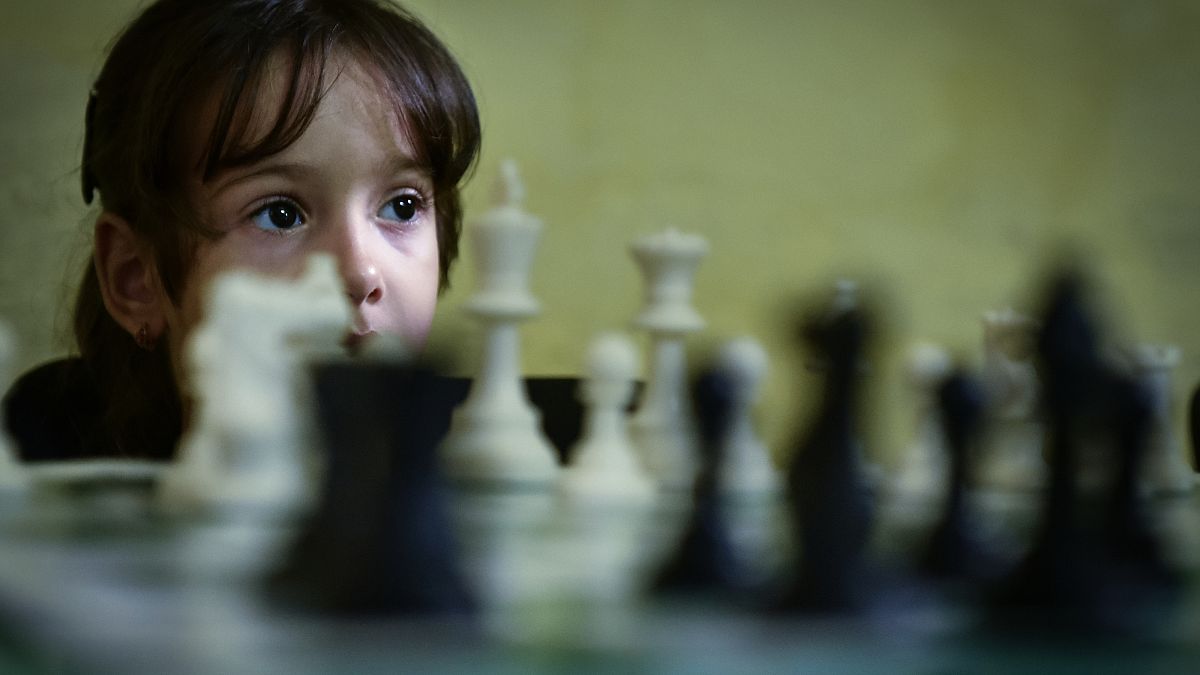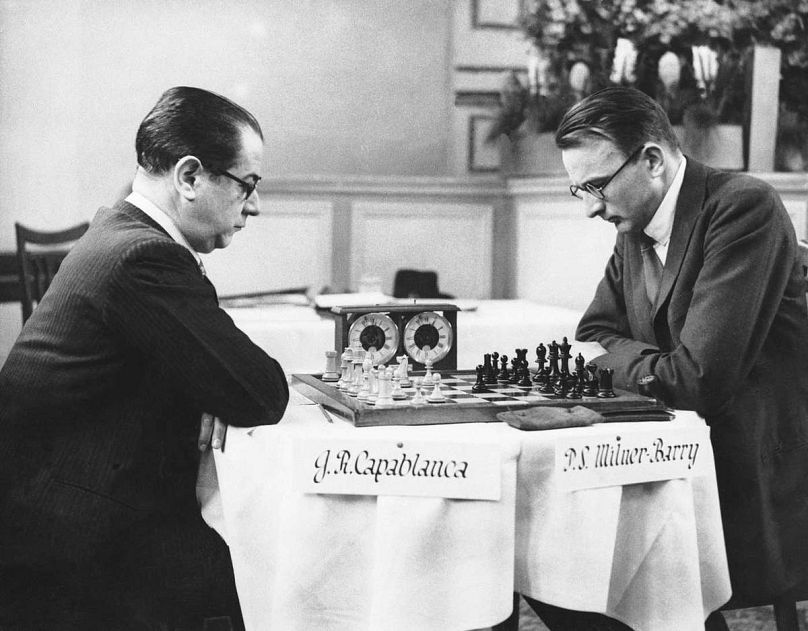The success of Netflix's The Queen's Gambit has renewed interest for chess and rekindled the debate over why so few women make it into the upper echelons of the intellectual sport.
The success of Netflix's The Queen's Gambit has renewed interest for chess and rekindled the debate over why so few women make it into the upper echelons of the intellectual sport.
The show, released earlier this month, has become the streaming giant's "biggest scripted limited series to date", having been watched by 62 million households in its first 28 days and ranked first in 63 countries.
It has also propelled the book on which it is based, written by Walter Tevis, into the New York Times bestseller list — 37 years after its release.
It depicts the life of an imaginary female chess prodigy named Beth Harmon, who after learning the game from the janitor of the orphanage she grows up in in the 1950s, goes on to become the world's greatest player.
In real life, no woman has ever been crowned world champion.
'The reality is not like that'
"The way the boys treat Beth in the series is a dream; sadly, the reality is not like that," Judit Polgar, a Hungarian former professional chess player and the only woman to have cracked the Top 10 in the game's 15-century history, has said.
Beth's character has many similarities with the late American grandmaster, and former world champion, Bobby Fischer. Often described as one of the best players of all time, Fischer was also known for controversial comments he made including this one from 1963: "Women are terrible chess players ... I guess they're just not so smart."
His is not an isolated case. Garry Kasparov, a Russian chess grandmaster and former world champion who participated in the making of Netflix's The Queen's Gambit, also made misogynistic comments in the past but later reneged them having been beaten in competition by Polgar in 2002.
Although Polgar is the highest-ranking female player of all time, it is likely that others with similar potential preceded her but had their achievements falling into oblivion.
Like Maria Teresa Mora Iturralde, a Cuban woman who, in 1922 at the age of 20, defeated all-male rivals to become Cuban chess master and Ibero-American champion. She is the only person to have ever received lessons from José Raul Capablanca, the world champion from 1921 and 1927, and described as one of the greatest players of all time.
Legend has it the student beat the master but sadly, her chess career stopped at the Cuban championship of 1922 and her story was all but forgotten until it was resurrected by the Havana3am specialised blog recently.
Chess at the 2024 Paris Games?
Fast-forward nearly 100 years and chess is now recognised as a sport by the International Olympic Committee and hopes to make its first appearance at the Paris Summer Games in 2024.
Still, there is about one woman in competition for every 15 men and only one woman is currently ranked amongst the world's top 100 chess players: Hou Yifan of China at the 88th spot.
The way to remedy this dismally-low number has however divided opinions. For instance, should the sport be fully segregated with male-only events and female-only competitions?
There is a women's chess world championship. There are also competitions reserved by age, by geography or profession, such as the championship of the Armed Forces.
But according to Spanish newspaper El Mundo, "these tournaments help those who participate receive extra media attention, gather financial support and establish relationships with others with whom they share a common interest."
"However, in countries where women's competition were experimentally abolished, the participation in mixed events was further reduced while in the federations that developed specific programmes aimed at young players, the results improved," it added.
'Play Like A Girl'
Polgar, who competed between 1988 and 2014, rarely took part in women's competition and defeated some of the most well-known male players including Kasparov, his fellow Russian grandmaster and former World Champion Anatoly Karpov, and the current world champion, Norway's Magnus Carlsen.
The youngest of three sisters — Zsuzsa and Zsofia Polgar are grandmaster and international master respectively — were all taught in the game by their father Laszlo. A psychologist, he aimed to demonstrate that a child can achieve exceptional results in a certain field if trained from an early age.
Nicknamed "The Queen of Chess", Polgar believes that competing in female-only events restricts female players in their potential and aspirations. Nowadays, the 44-year-old runs a foundation active in promoting chess as a tool for psychological growth.
Other female players to have made a name for themselves since includes Ana Matnadze, from Georgia, who today competes for Spain.
The 37-year-old— whose godmother is Nona Gaprindashvili, the first woman to be awarded the title of grandmaster — started playing at 4 and as a child trained for 10 hours a day.
The eastern European country was in the midst of a civil war then and the government was keen to promote national heroines. Prior to her participation in the Under-10 World Cup, she even received a phone call for the then-president, who told her that she had to win for the country.
Phiona Mutesi, of Uganda, has also made her name for herself. The 24-year-old, who grew up in a slum in Kampala, was forced to drop out of school at nine and work. She learnt chess from an after-school programme run by a charity.
Her awe-inspiring story was put down in a book, adapted to cinema by Disney in 2016.
American Woman grandmaster Jennifer Shahade, 39, is also well-known, notably for books she has released busting the myths about female players including "Chess Bitch: Women in the Ultimate Intellectual Sport" and "Play Like a Girl".
Chess increasingly popular online
According to a 2012 survey, 605 million adults play chess regularly around the world. And the "Game of Kings" is gaining in popularity through chess influencers streaming their matches online.
The COVID-19 pandemic and the lockdowns forcing tens of millions to stay at home have led to an explosion of chess watching.
In May, when half of humanity was under stay-at-home restrictions, eight million hours of chess was watched on the Twitch live-video streaming service. Last month, over 4.3 million hours was watched, nearly double the amount of October 2019, according to StreamElements.
The most popular channel is run by five-time US chess champion Hikaru Nakamura. At least 3 of the 10 most popular channels are run by women.
Perhaps the world's first female number one player is watching.

